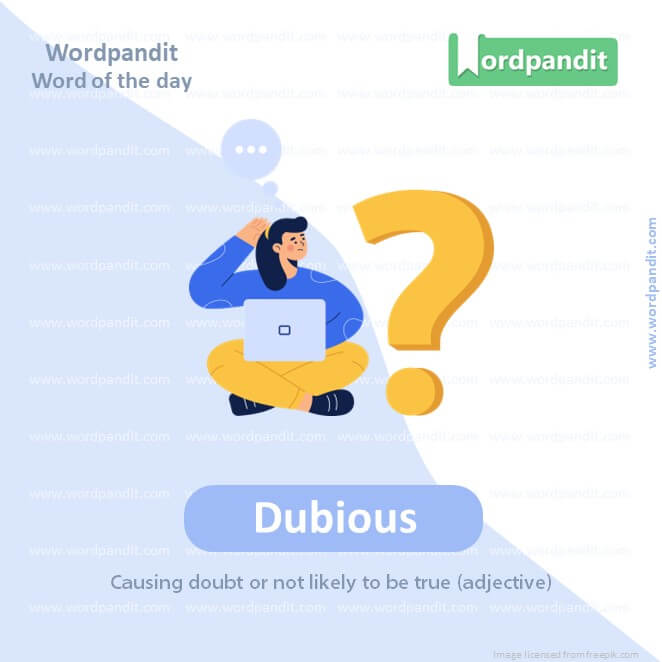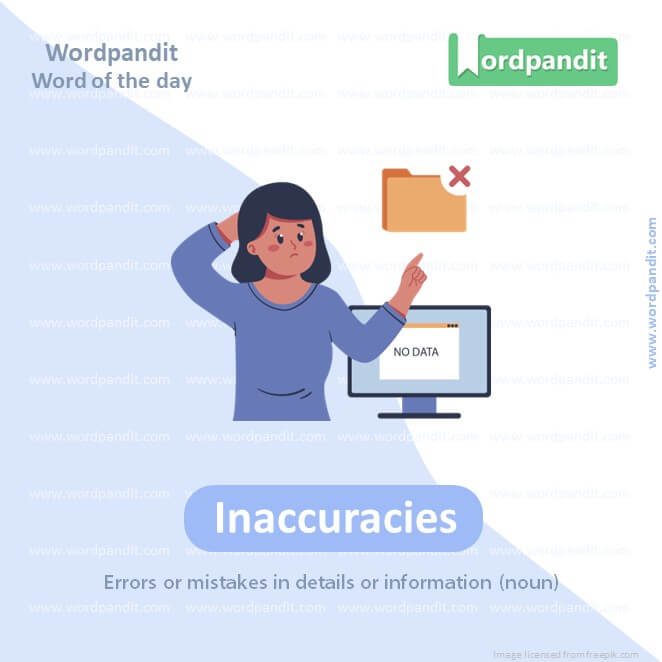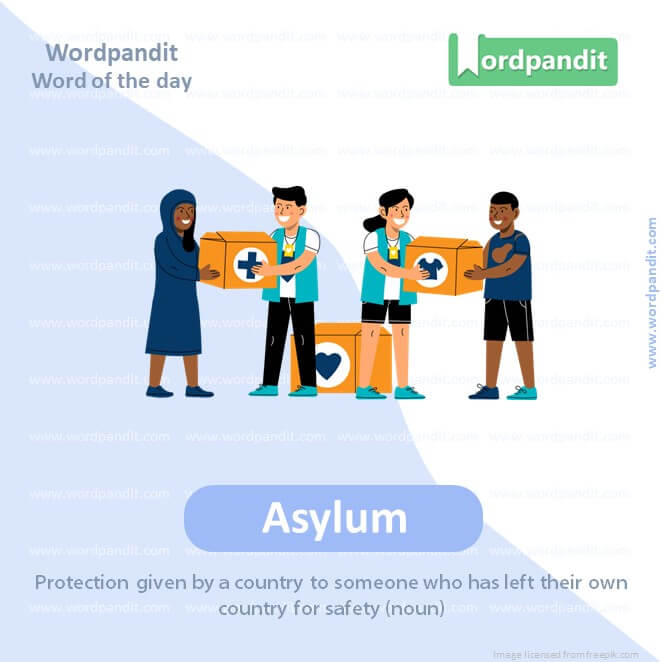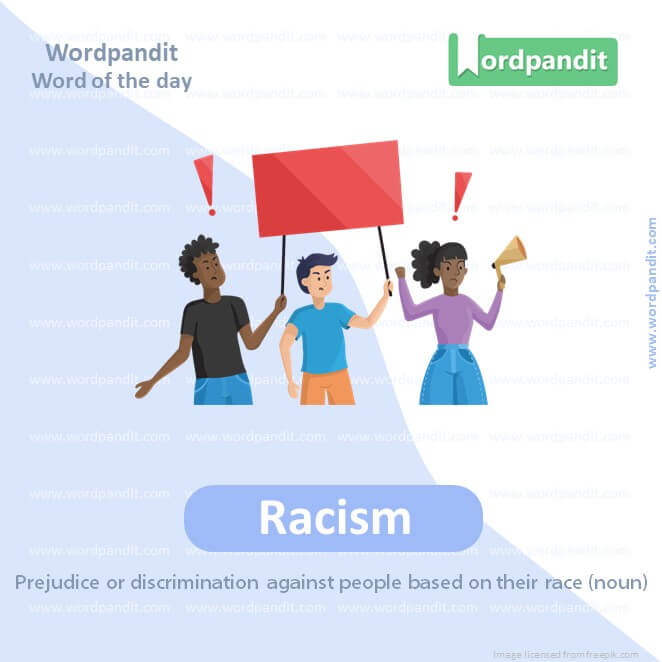Daily Vocabulary Words: List of Daily Used Words in Leading International Newspapers
Hi there. Welcome to this special section @ Wordpandit.
Our endeavour here is very simple: to highlight important daily vocabulary words, which you would come across in leading newspapers in the country. We have included the following newspapers in our selection:
• The New York Times
• The Washington Post
• Scientific American
• BBC
• The Guardian
• Psychology Today
• Wall Street Journal
• The Economist
We are putting in extensive work for developing your vocabulary. All you have got to do is be regular with this section and check out this post on a daily basis. This is your repository of words that are commonly used and essentially, we are posting a list of daily used words. Hence, this has significant practical application as it teaches you words that are used commonly in leading publications mentioned above.
Visit the website daily to learn words from leading international newspapers.

WORD-1: Dubious
CONTEXT: The election – probably a repeat of this week’s tax cuts based on dubious public spending forecasts – a decisive majority of voters may have already made up their minds against them.
SOURCE: The Guardian
EXPLANATORY PARAGRAPH: Imagine you think there might be a monster under your bed, but you’re not really sure. That feeling of not being sure, kind of like a big question mark in your mind, is what ‘dubious’ means. It’s when you think something might not be true or when you can’t really believe it.
MEANING: Causing doubt or not likely to be true (adjective).
PRONUNCIATION: DOO-bee-us
SYNONYMS: Doubtful, Skeptical, Uncertain, Questionable, Suspicious
USAGE EXAMPLES:
1. The story about the talking dog seemed dubious to the children.
2. She gave him a dubious look when he said he had finished his homework.
3. The evidence presented in the case was dubious and unconvincing.
4. They were dubious about the success of the new plan.

WORD-2: Inaccuracies
CONTEXT: The trailer’s promises were bountiful, and the historical inaccuracies spotted here and there (no, Napoleon didn’t fire cannon at the Pyramids) did little to dent our enthusiasm; great artists are allowed some poetic licence,
SOURCE: The Guardian
EXPLANATORY PARAGRAPH: When you tell a story but get some parts wrong, like saying your cat is blue when it’s actually grey, those mistakes are called inaccuracies. It means things that are not correct or not true.
MEANING: Errors or mistakes in details or information (noun).
PRONUNCIATION: in-AK-yur-uh-sees
SYNONYMS: Mistakes, Errors, Faults, Misstatements, Falsehoods
USAGE EXAMPLES:
1. The teacher found several inaccuracies in the student’s essay.
2. To avoid inaccuracies, the scientist carefully measured everything.
3. The newspaper issued a correction to fix the inaccuracies in the article.
4. He apologized for the inaccuracies in his report.

WORD-3: Asylum
CONTEXT: Asylum is granted, we will have to find new accommodation and I can start looking for a job.
SOURCE: The Guardian
EXPLANATORY PARAGRAPH: Asylum is like a safe place where people go when they need protection, especially when their own country is not safe for them anymore. It’s like having a big, strong friend who promises to keep you safe from harm.
MEANING: Protection given by a country to someone who has left their own country for safety (noun).
PRONUNCIATION: uh-SY-luhm
SYNONYMS: Refuge, Sanctuary, Shelter, Safe Haven, Protection
USAGE EXAMPLES:
1. She sought asylum in a new country to escape the war in her homeland.
2. The embassy granted him asylum after he fled his country.
3. They applied for asylum due to the political unrest in their country.
4. Many people in history have found asylum in foreign nations.

WORD-4: Fiercely
CONTEXT: More than 1.5 million supporters, from 180 countries, now power us financially – keeping us open to all, and fiercely independent.
SOURCE: The Guardian
EXPLANATORY PARAGRAPH: Fiercely is how a lion roars or how you might defend your favorite toy from your sibling. It means doing something really strongly and with lots of energy, like you really mean it.
MEANING: In a strong, intense, or aggressive way (adverb).
PRONUNCIATION: FEER-slee
SYNONYMS: Intensely, Vigorously, Ferociously, Aggressively, Vehemently
USAGE EXAMPLES:
1. The wind blew fiercely through the trees.
2. She argued fiercely to defend her point of view.
3. The team fought fiercely to win the championship.
4. He worked fiercely to meet the deadline.

WORD-5: Racism
CONTEXT: Racism has been tolerated by the government, especially with the way they talk about refugees like there’s an invasion.
SOURCE: The Guardian
EXPLANATORY PARAGRAPH: Racism is when people are unkind or unfair to other people because of the color of their skin or where they come from. It’s like saying someone can’t play with you just because they look different, which is not nice at all.
MEANING: Prejudice or discrimination against people based on their race (noun).
PRONUNCIATION: RAY-siz-um
SYNONYMS: Prejudice, Discrimination, Bigotry, Intolerance, Xenophobia
USAGE EXAMPLES:
1. The community leaders spoke out against racism in their city.
2. Racism can lead to unfair treatment in many areas of life.
3. Educating children about diversity is one way to combat racism.
4. He wrote an article on the effects of racism in the workplace.
WORD-6: Antisemitism
CONTEXT: The prevalence of antisemitism in our own country, especially on college campuses.
SOURCE: The Washington Post
EXPLANATORY PARAGRAPH: Antisemitism is being mean or unfair to Jewish people just because they are Jewish. It’s like not letting someone play with you just because of who they are, which is very unkind.
MEANING: Hostility or discrimination against Jewish people (noun).
PRONUNCIATION: AN-tee-SEM-i-tiz-um
SYNONYMS: Prejudice, Bigotry, Hatred, Discrimination, Intolerance
USAGE EXAMPLES:
1. Antisemitism has been a problem in various societies for centuries.
2. The museum held an exhibit to educate people about the history of antisemitism.
3. Many organizations work to fight antisemitism and promote tolerance.
4. Laws have been passed in some countries to combat antisemitism.
WORD-7: Exasperation
CONTEXT: My love for Israel is strong enough to survive my exasperation with the policies of its current government.
SOURCE: The Washington Post
EXPLANATORY PARAGRAPH: Exasperation is when you feel really annoyed or frustrated, like when you can’t get a puzzle piece to fit after trying many times. It’s like feeling a big “Ugh!” inside.
MEANING: A feeling of intense irritation or annoyance (noun).
PRONUNCIATION: ex-as-puh-RAY-shun
SYNONYMS: Frustration, Annoyance, Irritation, Aggravation, Vexation
USAGE EXAMPLES:
1. He sighed in exasperation after losing his keys again.
2. Her constant questions caused exasperation among her colleagues.
3. The computer’s slow speed led to exasperation.
4. She expressed exasperation over the delay in the project.
WORD-8: Monolithic
CONTEXT: Jewish Americans are not monolithic — we’re fractious Jews, after all.
SOURCE: The Washington Post
EXPLANATORY PARAGRAPH: Monolithic is like a huge, single piece of rock. It’s used to describe something that’s really big and doesn’t change much, like a giant mountain that stands alone.
MEANING: Large, powerful, and intractably indivisible and uniform (adjective).
PRONUNCIATION: mon-o-LITH-ik
SYNONYMS: Massive, Uniform, Unchanging, Imposing, Solid
USAGE EXAMPLES:
1. The company was a monolithic structure with strict rules.
2. The monument was a monolithic piece of stone.
3. His monolithic approach to management was not popular.
4. The ancient temple was built from a monolithic slab of rock.
WORD-9: Intravenous
CONTEXT: An intravenous infusion or a series of injections, is an option for people diagnosed with covid who are not able to take Paxlovid.
SOURCE: The Washington Post
EXPLANATORY PARAGRAPH: Intravenous is like a special way doctors give medicine through a tiny tube directly into your veins. It’s like a quick path for the medicine to travel inside your body.
MEANING: Into or within a vein, often used for giving medicine or fluids (adjective).
PRONUNCIATION: in-truh-VEE-nus
SYNONYMS: IV, Venous, Direct-to-Vein, Intravascular, Vascular
USAGE EXAMPLES:
1. The patient received an intravenous drip in the hospital.
2. Intravenous medication is often used in surgeries.
3. She was put on an intravenous feed after the surgery.
4. Intravenous therapy is crucial for treating certain conditions.
WORD-10: Probing
CONTEXT: The gag order violates his free speech rights, probing the precise contours of District Judge Tanya S. Chutkan’s edict that Trump refrain from attacking witnesses.
SOURCE: The Washington Post
EXPLANATORY PARAGRAPH: Probing is like looking for something very carefully and asking lots of questions. It’s like being a detective trying to find clues to solve a mystery.
MEANING: Searching or investigating thoroughly (verb, adjective).
PRONUNCIATION: PROH-bing
SYNONYMS: Investigating, Examining, Searching, Inquiring, Delving
USAGE EXAMPLES:
1. The detective was probing into the details of the case.
2. Her probing questions made him uncomfortable.
3. The scientist spent hours probing the mystery of the stars.
4. The article was a probing analysis of the government’s policies.
vocabulary enrichment
In the realm of language acquisition and proficiency, one crucial element takes center stage: vocabulary enrichment. The process of broadening one’s lexicon goes beyond mere word accumulation, it is an essential facet that enables effective communication, comprehensive understanding, and refined expression of thoughts.
Vocabulary enrichment should be approached as a continuous journey, an iterative process that is both interactive and dynamic. It begins with fostering an active interest in words and their meanings. A deep dive into the history, etymology, and the varied context in which a word is utilized often unveils captivating stories. This engagement with language paints a vivid picture, ensuring words stick in your memory and are easier to recall.
The second critical aspect to vocabulary enrichment involves reading. As you immerse yourself in diverse forms of literature – books, newspapers, blogs, or academic articles – you encounter an array of new words. Make it a habit to not gloss over these unknown terms, but rather seek their meanings and usage. Admission to this world of words will gradually extend your vocabulary breadth, amplifying your ability to comprehend complex concepts and communicate fluently.
Yet, vocabulary enrichment is not just about passively accumulating words, but actively using them. Include the new words learned in your daily conversations and writing. This not only reinforces their meaning but also familiarizes you with their appropriate usage.
Try out simple and engaging techniques like crosswords, word puzzles, and vocabulary apps. They keep the process fun and game-like, avoiding the monotony that can come with learning.
As a final note, remember that vocabulary enrichment is a marathon, not a sprint. It requires patience, persistence, and an undeniable curiosity about the power and magic of words. So, embark on this linguistic odyssey and discover the transformative impact vocabulary enrichment can have both professionally and personally.







